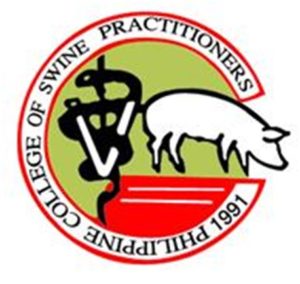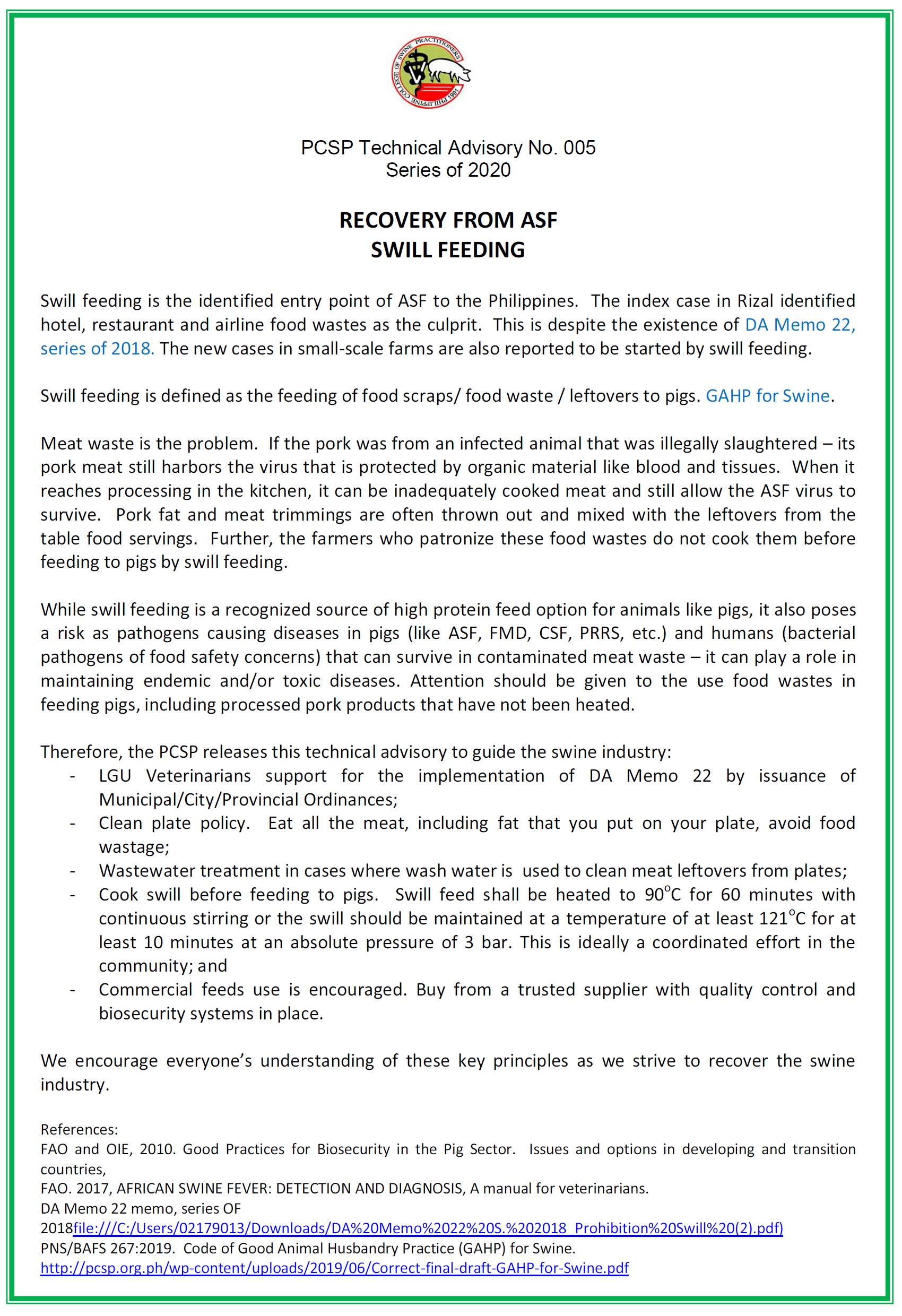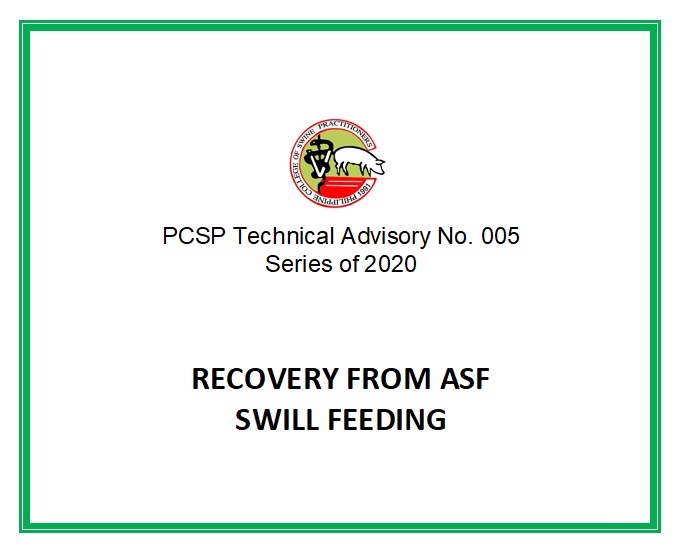
PCSP Technical Advisory No. 005
Series of 2020
RECOVERY FROM ASF
SWILL FEEDING
Swill feeding is the identified entry point of ASF to the Philippines. The index case in Rizal identified hotel, restaurant and airline food wastes as the culprit. This is despite the existence of DA Memo 22, series of 2018. The new cases in small-scale farms are also reported to be started by swill feeding.
Swill feeding is defined as the feeding of food scraps/ food waste / leftovers to pigs. GAHP for Swine.
Meat waste is the problem. If the pork source was an infected animal that was illegally slaughtered – its pork meat still harbors the virus that is protected by organic material like blood and tissues. When it reaches processing in the kitchen, it can be inadequately cooked meat and still allow the ASF virus to survive. Pork fat and meat trimmings are often thrown out and mixed with the leftovers from the table food servings. Further, the farmers who patronize these food wastes do not cook them before feeding to pigs.
Why is it prohibited?
While swill feeding is a recognized source of high protein feed option for animals like pigs, it also poses a risk as pathogens causing diseases in pigs (like ASF, FMD, CSF, PRRS) and humans (bacterial pathogens of food safety concerns) can survive in contaminated meat waste – it can play a role in maintaining endemic or toxic diseases. Attention should be given to the use food wastes in feeding pigs, including processed pork products that haver not been heated.
Therefore, the PCSP releases this technical advisory to guide the swine industry:
- LGU Veterinarians to request support for the implementation of DA Memo 22 by issuance of Municipal/City/Provincial Ordinances.
- Clean plate policy. Eat all the meat, including fat that you put on your plate. (Expert advise, personal interview)
- Waste water treatment. Wash water used to clean meat and leftovers from plates.
- Cook swill before feeding to pigs. This must be a coordinated effort in the community. Swill feed shall be heated to 90oC for 60 minutes with continuous stirring or the swill should be maintained at a temperature of at least 121oC for at least 10 minutes at an absolute pressure of 3 bar.
- Commercial feed use. Buy from a trusted supplier with quality control and biosecurity systems in place.
We encourage everyone’s understanding of these key principles as we strive to recover the swine industry.





Leave A Comment